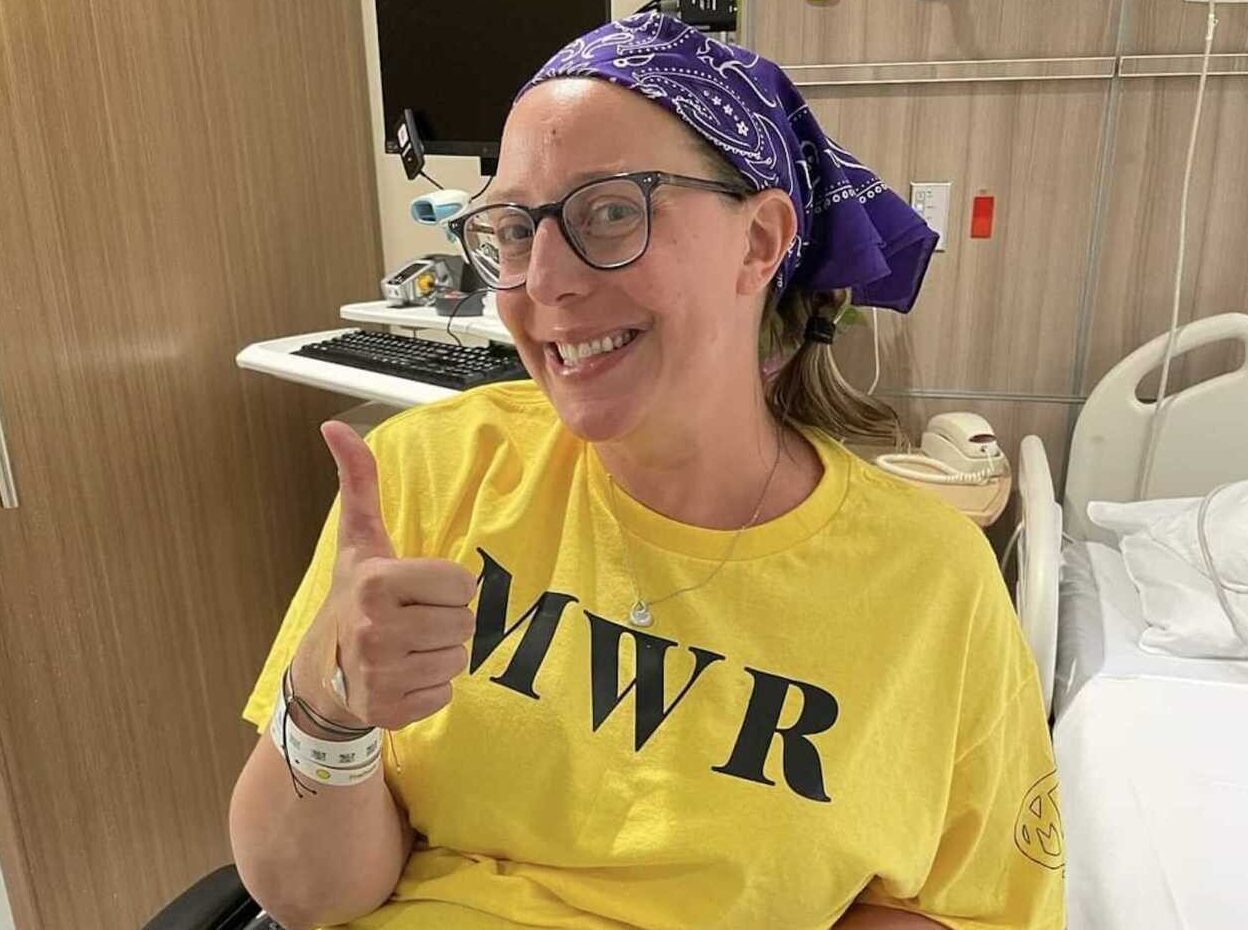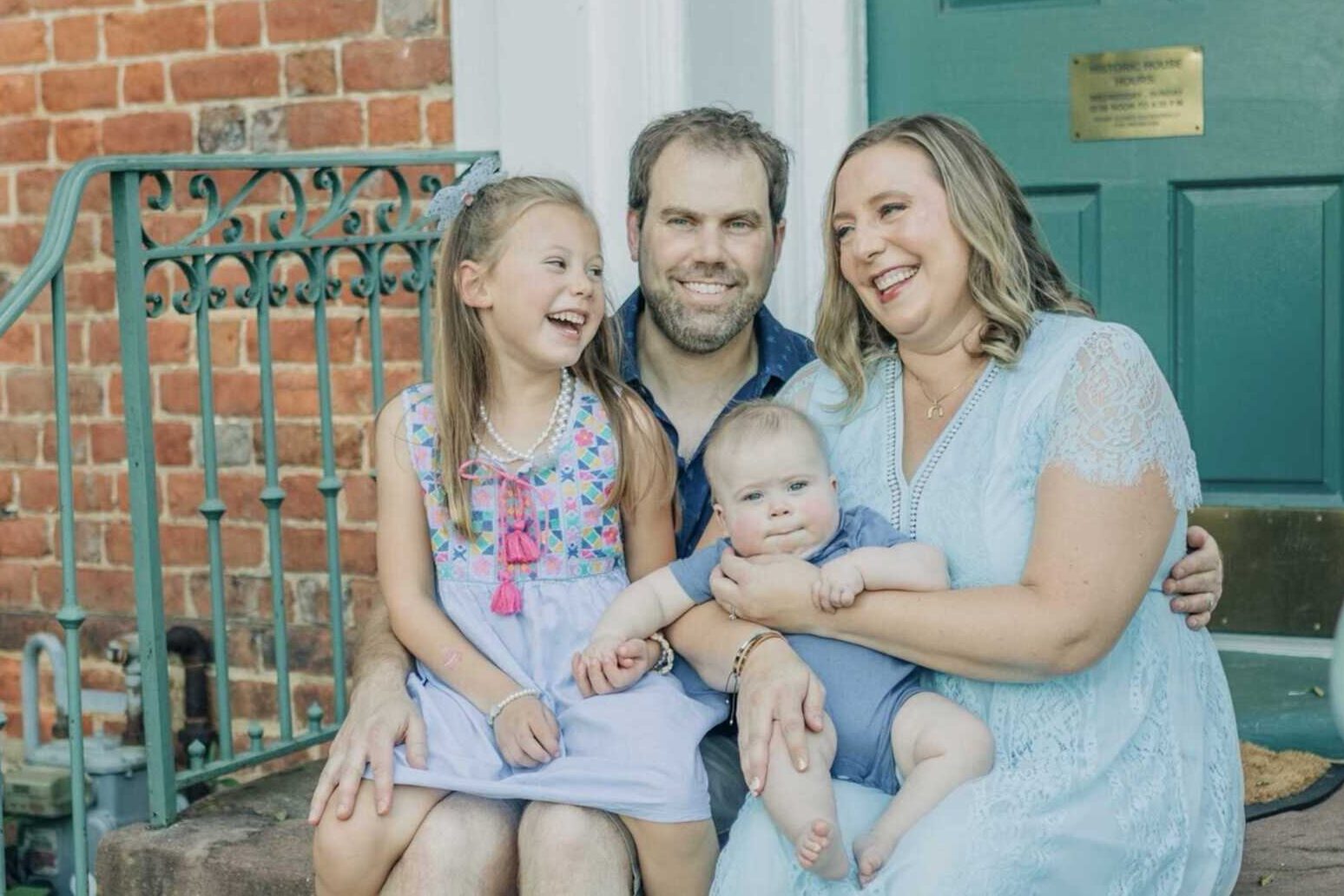It started out as an ordinary day, like any other.
Nikki Reed, her husband Mike, and their two young children, 5-year-old Sylvia and 6-month-old Eli, were spending their Fourth of July at the pool when Reed began to feel dizzy.
Thinking she was just dehydrated, Reed went home, took a cold shower and drank plenty of water. But the dizziness persisted.
That night, she struggled to remove her contacts and earrings with her left hand. The following morning, she had difficulty holding Eli and her left arm felt numb.
After seeing her primary care physician and physical therapist, she was told it may be a pinched nerve due to carrying her baby. On their advice, Reed went to the emergency room for more tests.
After a CT scan, Reed received her results via email as she sat alone on a hospital gurney in the hallway. She had a rare and aggressive brain tumor, later diagnosed as glioblastoma.
In a matter of days, Reed’s life would take an abrupt turn.
“I went to the doctor on July 5. I went to the hospital on July 6. I had a brain biopsy on the 8th and the surgery [removed the tumor] was a couple of days after that,” Reed, an art teacher entering her seventh year at Tuckahoe Elementary School, told ARLnow.
A long road ahead
While the neurosurgeon successfully removed about 95% of Reed’s rapidly growing tumor, she still requires radiation and chemotherapy to eradicate the remaining cancerous cells.
Reed has been undergoing treatment since July that will continue through the end of the September.
Although glioblastoma is not curable, Reed said it is treatable.
The National Brain Tumor Society says glioblastoma “is one of the most complex, deadly, and treatment-resistant cancers.”
The five-year survival rate stands at about 7% but, on average, patients diagnosed with glioblastoma are expected to survive about eight months.
These statistics are sobering. Still, Reed remains hopeful, declaring on her online blog she plans to “fight like hell” to be here for her family.
“I told my oncologist, ‘I hear you saying that it’s treatable but not curable. Tell me about someone you’ve treated,’ and he said, ‘I’ve treated people that are here 10 to 15 years later.’ I said, ‘Okay, keep me alive because 10 to 15 years is a lot of time for medical advancement. Let’s do what we can to keep me here,'” she told ARLnow.
‘I can do hard things’
In the months following her diagnosis, Reed said her her parents relocated from Richmond to Fairfax to be closer. Many of her friends and colleagues have also helped raise funds to assist with the mounting medical bills and other expenses.
“We have a lot of medical expenses… we have childcare costs, food, medical. Yeah, all those things — because insurance doesn’t cover literally anything,” she said. “I’m a teacher. Mike works for the government. Like, we’re not bringing in that much cash on our own. All of this is just unexpected.”
To date, Reed’s community has rallied to raise approximately $32,000 through a GoFundMe campaign and the sale of t-shirts bearing the message “I can do hard things” on the front.
“It’s a poster that I made my first year teaching art… I put it up for myself. I can do hard things coming back from maternity leave and teaching during the pandemic,” she said.
Reed has also provided links to her Meal Train page and Amazon wish list on the blog page.
“But that’s how we got a lot of like the equipment that we needed around our house because people wanted to help and they said, ‘We’re willing to help but we didn’t know what [you] needed,'” she said.
Learning to walk with cancer
Although the radiation left her immobile for several months, Reed said she has started to gain back her “independence” with intensive physical therapy.
“I lost a lot of mobility because my brain was swollen from radiation. But we’ve controlled that with steroids and I’m moving really well right now,” she said. “I’ve gained independence back like I can do things around the house on my own. I can’t take care of the kids on my own which is really hard.”
Reed noted the hardest part, however, is learning to accept the reality of her situation.
“This is not the life I planned. This is not the life that I wanted,” she said. “I’m literally walking with cancer. But I need to accept that it’s here and it’s not going anywhere.”
Just a few months ago, everything was “completely normal,” Reed said, adding it has been difficult not to go “down a rabbit hole” thinking about “what life would be like not being here.”
Nevertheless, she’s been working with her therapist to find a balance between letting herself grieve and also “trying everyday to find pieces of happiness.”
“I have to dial myself back and be like, ‘My kids are coming home and I get to hug them and love them and eat dinner with them,'” Reed said.
If there is a silver lining, it is that Reed no longer takes anything for granted. After her diagnosis, she committed to being present and purposeful — something she hopes others resolve to do, hearing her story.
“Make sure you tell people you love them, even if a lot of time has gone by,” she said. “I’ve connected with friends that I hadn’t seen in 10 years and it felt like we picked right back up where we left off because some people are meant to hold a space in your heart or a space in your life. I think everything is about the power of creating connection.”



